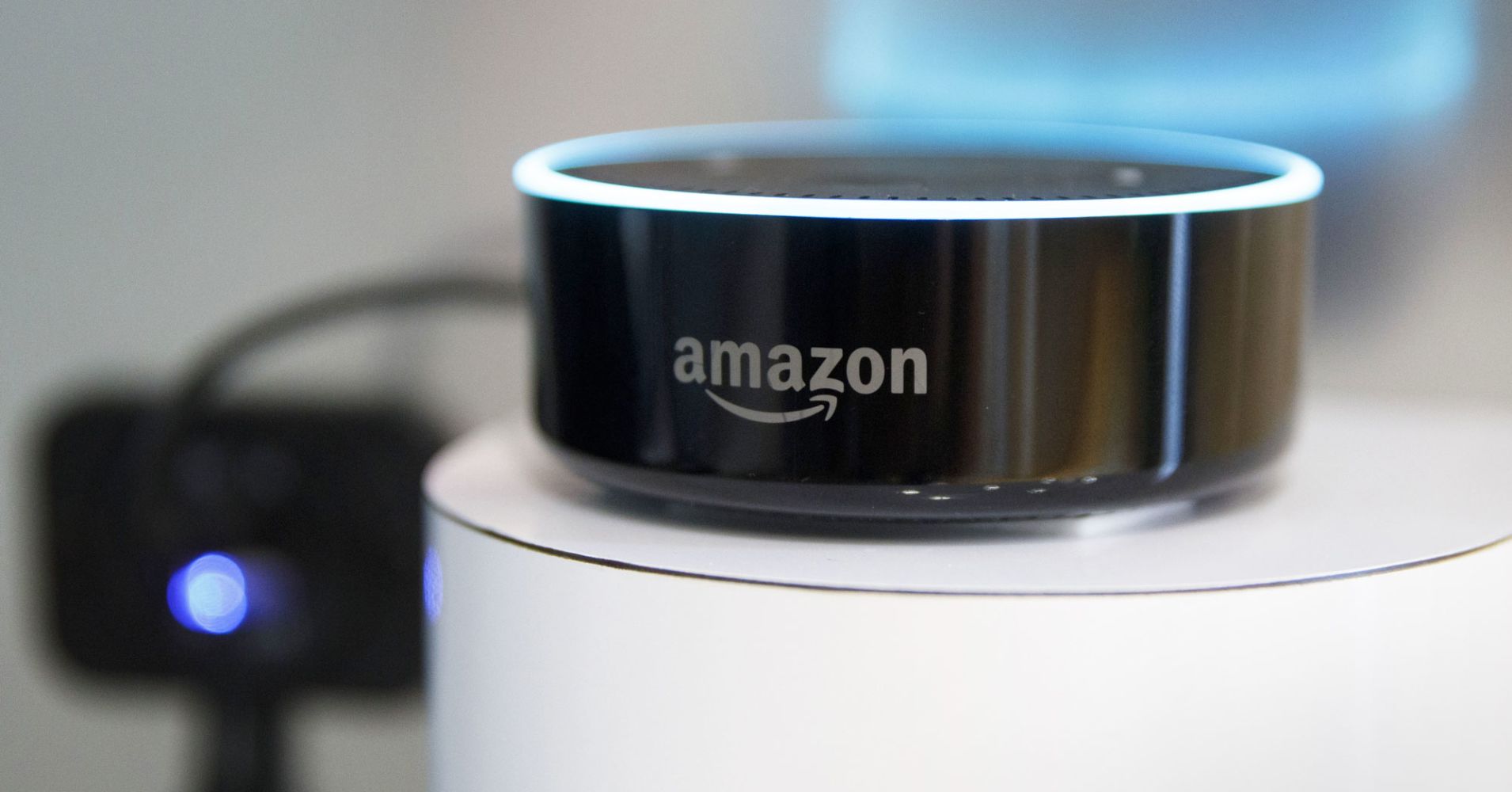Amazon announced a surfeit of new products at its hardware event in September 2019: smart speakers, smart displays, WiFi setups and its first foray into wearables. But the real hero was Alexa. Amazon wants Alexa everywhere and is willing to experiment with multiple products to get there.
Amazon announced a surplus of products and services at its September 2019 hardware event in Seattle, including new Echo smart speakers, a new smart display, as well as its first-ever wearables: the mainstream Echo Buds wireless headphones and the experimental Echo Frames smart glasses and Echo Loop smart ring. Amazon is moving aggressively to expand Alexa’s user base to the next level – beyond the home, where the popular voice assistant has so far had the most impact.
Alexa is widening its horizons
Amazon has built multiple products to integrate Alexa into people’s daily lives, but its impact has been largely limited to inside the home. With its new wearable Echo Buds, Amazon is expanding Alexa’s customer base and taking Alexa on-the-go in the only other personal electronic besides a smartphone – wearables.
At US$130, the Echo Buds don’t offer any unique features, but are comparatively inexpensive and undercut almost every other brand on price. Amazon also introduced two invite-only trial devices with limited availability: a pair of smart glasses, Echo Frames and a smart ring, Echo Loop, with always-on Alexa access. Smart glasses and smart rings are niche products aimed at early adopters and are unlikely to become mainstream devices just yet. But the launch of a wearable category of products indicates Amazon is aware that the future of voice assistants is very much on-the-go and personalised.
Alexa will be more private but will it be enough?
Privacy was the white elephant at the hardware event inside the Amazon Spheres in Seattle, and Amazon addressed it head-on within the first five minutes. Amazon introduced several skills to reassure its customers of their data privacy. Users can now auto delete voice recordings by issuing a voice command (“Alexa, delete what I just said,” or “Alexa, delete everything I said today.”) Users can also ask Alexa if a conversation was recorded (“Alexa, tell me what you heard”). Customers also have the option of rolling deletion of all recordings older than a certain time frame: three months or 18 months. For Amazon, gaining trust is crucial in expanding Alexa everywhere.
Apple openly advertises its closed ecosystem and commitment to customer data privacy and Google is adopting an opt-in privacy model, similar to Amazon. Adding more transparency features is a step forward in the right direction, but privacy will be an ongoing industry-wide concern with the rise of AI and IoT products and capabilities.

US Tariffs are shifting - will you react or anticipate?
Don’t let policy changes catch you off guard. Stay proactive with real-time data and expert analysis.
By GlobalDataAmazon needs a smartphone
Amazon’s Alexa is missing one key attribute that Google Assistant and Apple’s Siri have: the smartphone. Google Assistant is on a billion Android smartphones globally, supports 30 languages, and is available in 80 countries. Amazon’s Alexa supports seven languages. Apple’s Siri, though not on par with Alexa and Google Assistant in functionality and skills, is the only voice assistant available on a billion iPhones across the world.
If Amazon wants to truly expand Alexa’s user base, it is time to revisit the smartphone, the one personal electronic guaranteed to be with a user all day. Amazon’s 2014 Fire phone was expensive, gimmicky and designed more for Amazon than the consumer, and did not garner much sales traction. Amazon will need strong partnerships if it is to re-enter the smartphone market, with both OEMs and carriers, as well as a strong marketing campaign. A smartphone will be a central hub for Amazon’s content and services and generate significant customer data to feed Amazon’s AI, far more in scope than earbuds or smart speakers.
Amazon has also amassed plenty of value adds to offer customers since 2014: a large music service, award-winning original video content, and one of the most efficient voice assistants currently available.
In the meantime, Amazon’s foray into wearables is a training ground for Amazon to take Alexa on-the-go and see which product sticks with the consumer. For now, Amazon’s hero product is Alexa.
Related Report:









